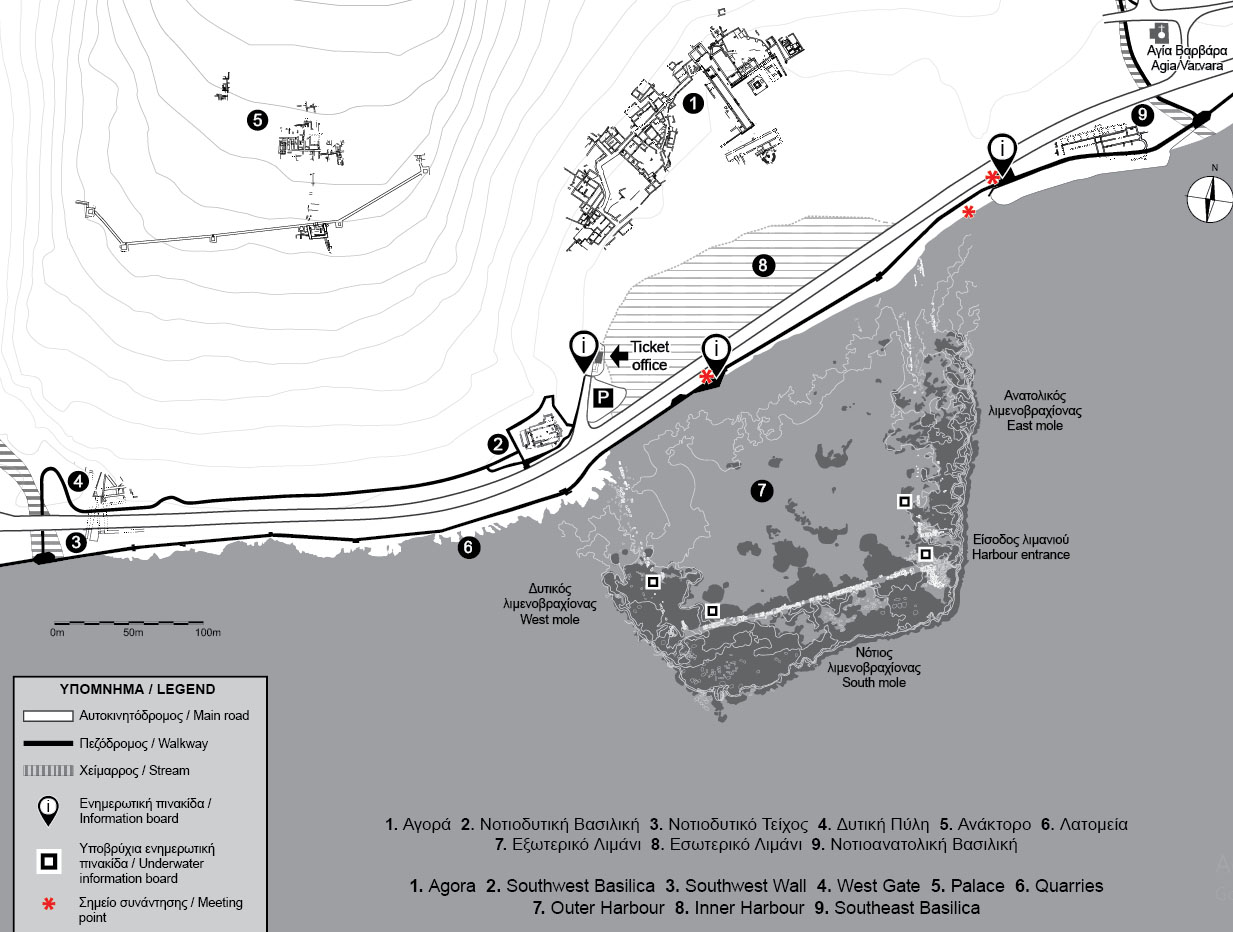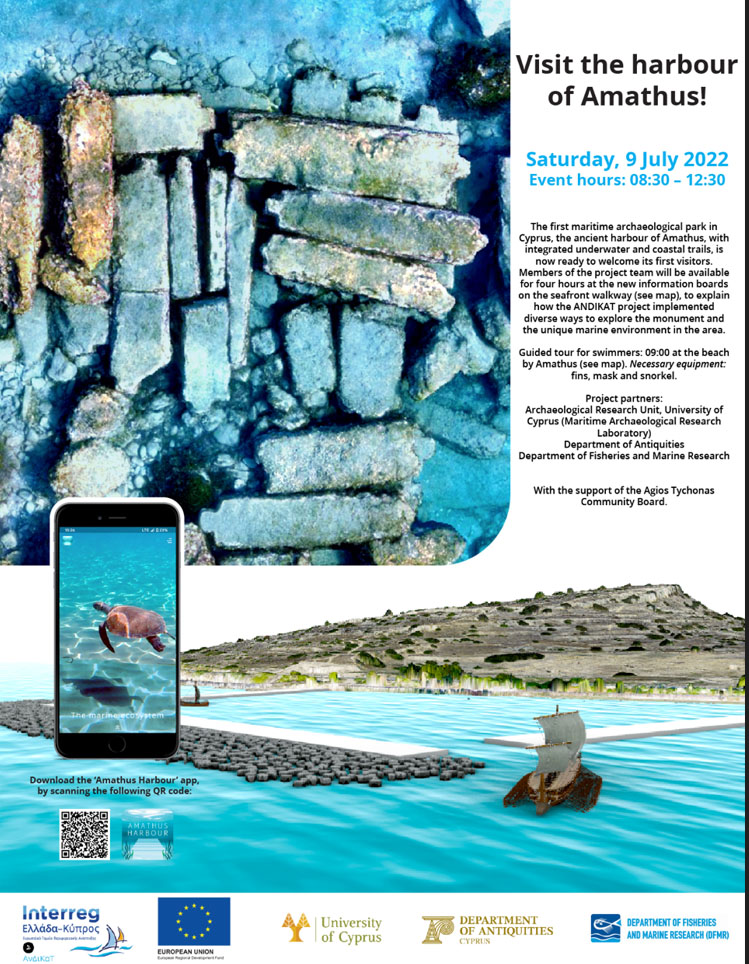
Amathus, one of the best-preserved ancient kingdoms in the Eastern Mediterranean, is being reintroduced as a maritime archaeological park. Visitors can now don masks and flippers and explore its ancient port underwater while following informative boards that will direct them to important points within the sunken monument.
The inauguration will take place on Saturday, July 9th from 0830 to 1230. Guests will have the opportunity to participate in the swimming tour at 09:00 AM using their own mask, snorkel and flippers. The public will now have the opportunity to visit an ancient monument beneath the sea and experience its unique ecosystem while understanding its relevance to the history of Cyprus. (Map with meeting points: https://bit.ly/3OLmNwg)

Creation of an underwater archaeological park
The creators of the program focused on the establishment of diving routes in marine protected areas in Greece and Cyprus, as a means of promoting and protecting the underwater cultural and natural heritage.
The abandonment of the port in antiquity created a rare condition in Amathus: the site is preserved in its original phase without being altered by later uses, as is usually the case in other port sites in Cyprus and the rest of the Mediterranean. The dating and archaeological features of the port have been documented by the excavation carried out in the 1980s by the French Archaeological School of Athens, directed by Jean-Yves Empereur. The surviving architectural remains are located at a shallow depth (up to -4m) and close to the coast, which makes the site accessible to the general public. These reasons and the special biodiversity of the area were of decisive importance both for the inclusion of the port in the Amathus Marine Protected Area.

Download the “Amathus Harbour” app, https://play.google.com/store/apps/details?id=com.mdl.andikat, available in Greek and English.
The project was implemented by the Marine Archaeological Research Laboratory (ERENAE) of the University of Cyprus Archeology Research Unit, the Department of Antiquities of the Ministry of Transport, Communications and Works and the Department of Fisheries and Marine Research of the Ministry of Agriculture, Natural Resources and Environment, within the framework of the Act AndiKaT "Development of Diving Tourism Network", of the Cross-Border Program Greece - Cyprus, 2014 - 2020, INTERREG V - A. The program received co-financing from the European Union (ERDF) and from the National Resources of Greece and Cyprus.
































